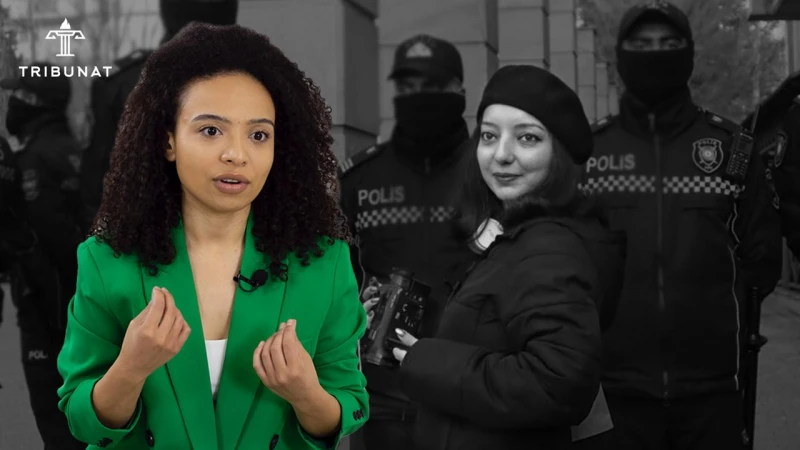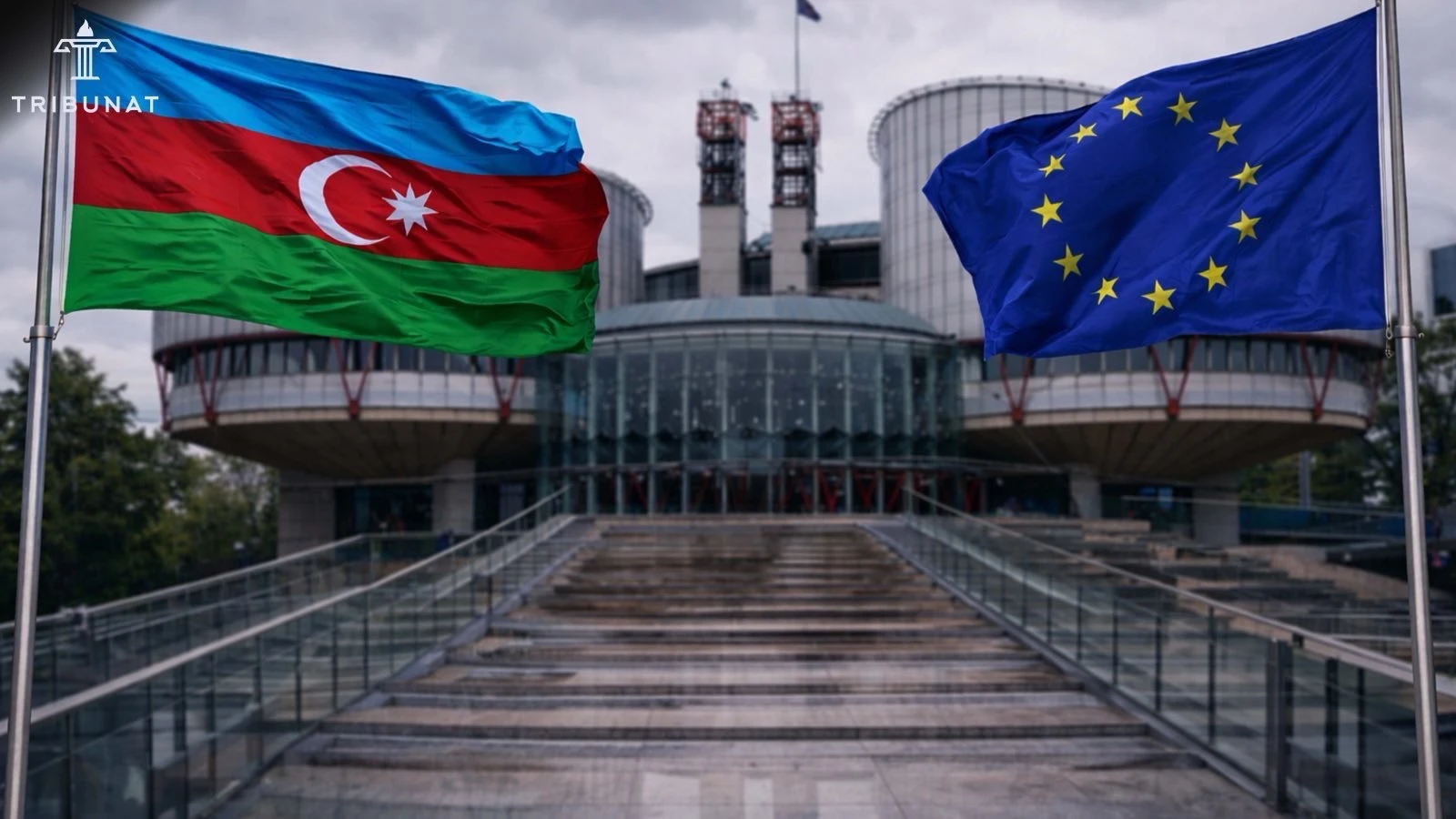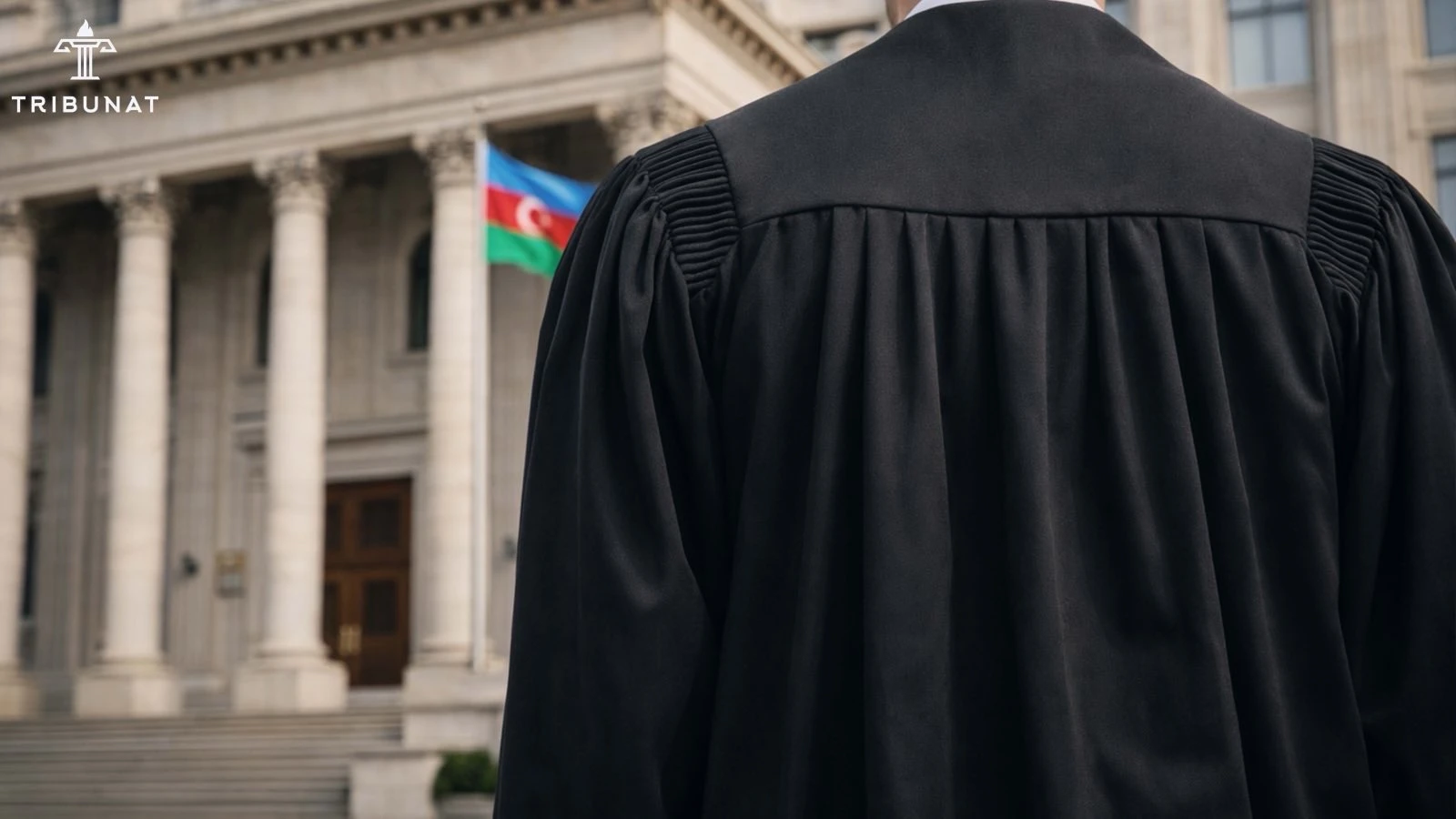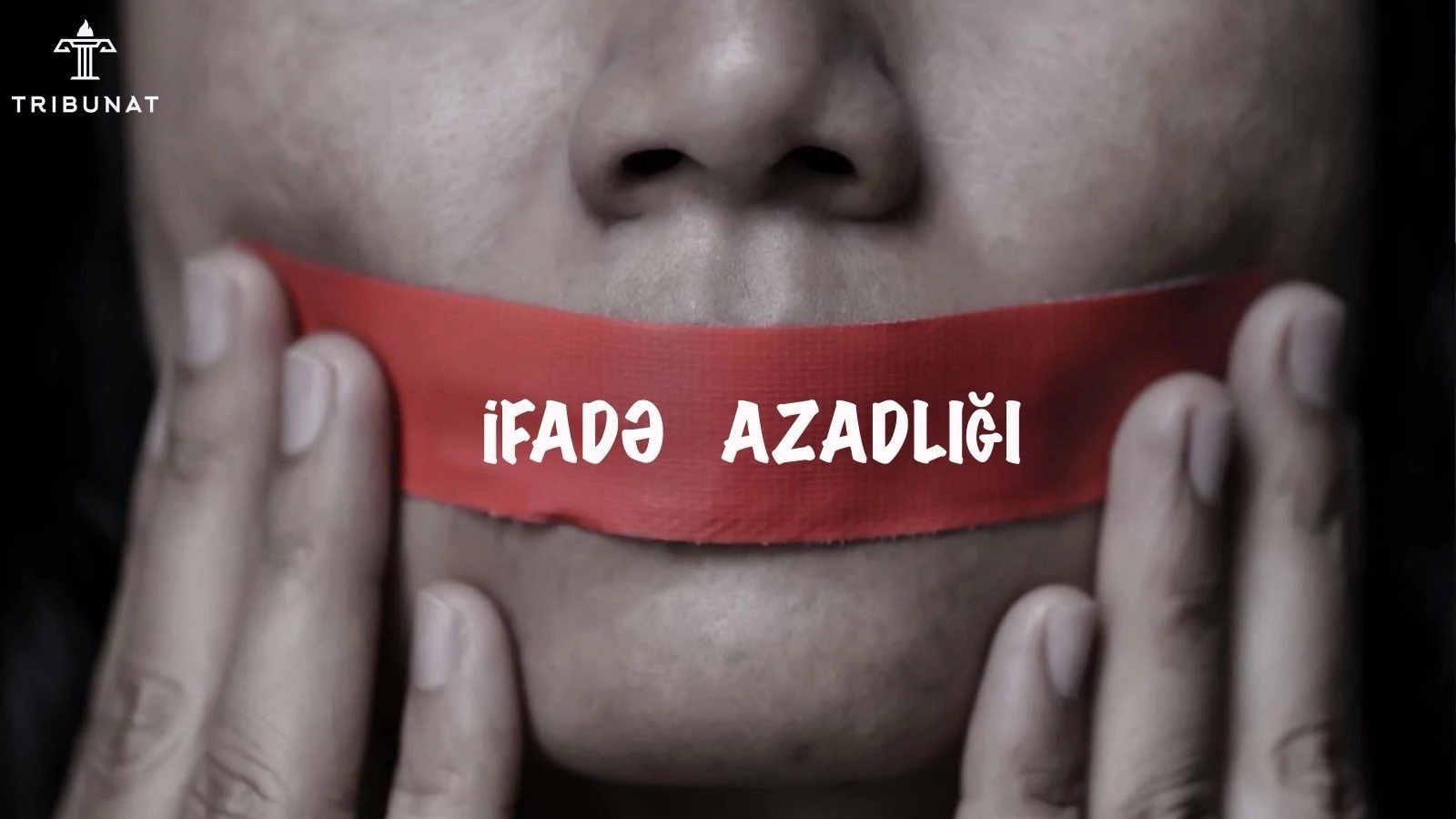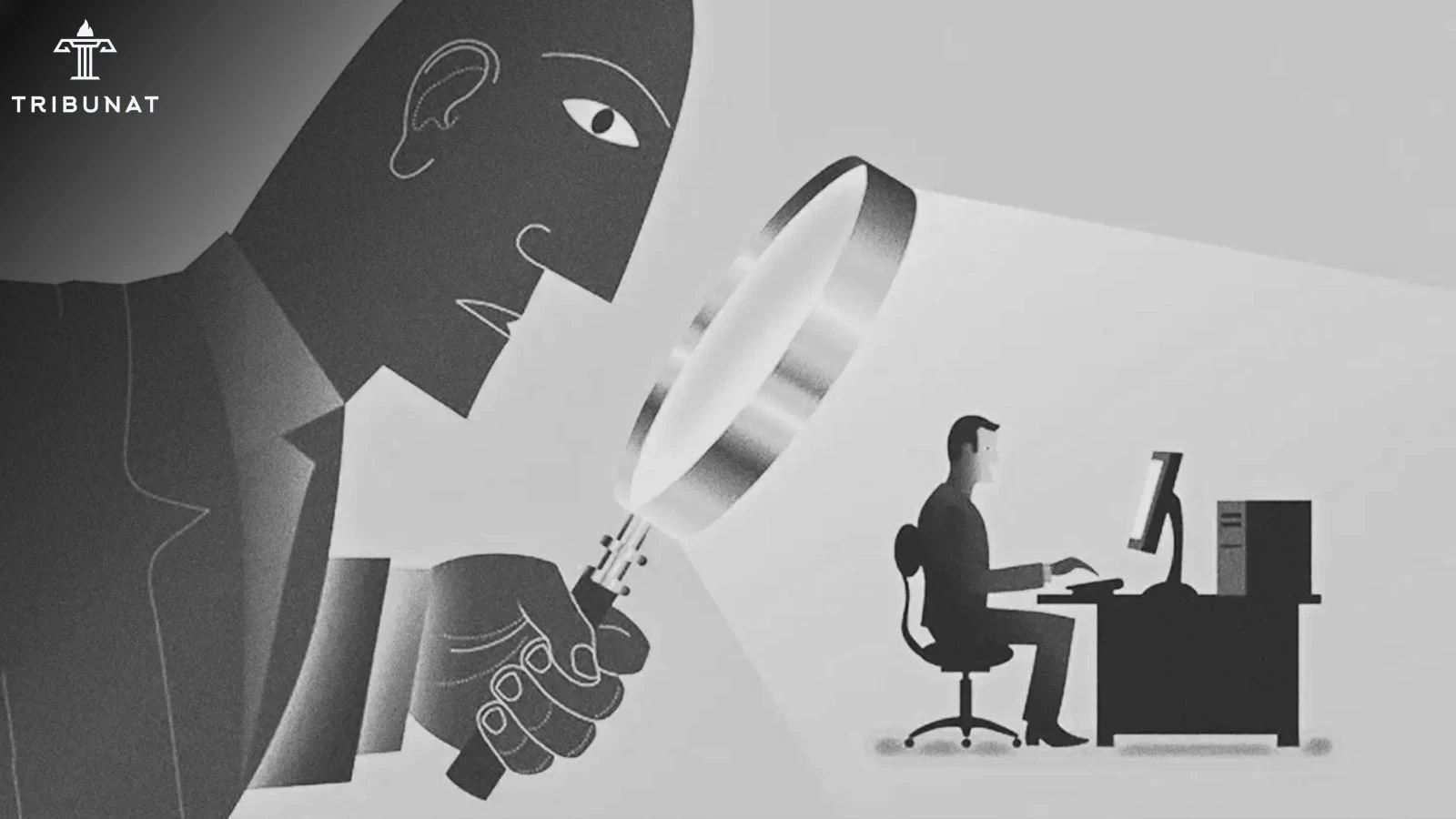Aysha Abdel Qadir, the lawyer of the journalist Elnara Gasimova, who was arrested for the "Abzas" case, said that her documents were examined without any reason at the Baku Investigative Detention Center.
The lawyer said, "I informed them that the lawyer's documents are confidential, but they ignored it, put me in a separate room, and then said that they saw Elnara taking notes in my documents and therefore they needed to see the documents."
"Tribunat" investigated the legality of checking the documents of the lawyer while performing her duties.
It is not the first time that the lawyers of persons considered political prisoners in Azerbaijan are checked upon entering and exiting detention centers and penal institutions, before and after meeting with their clients, and inspecting their documents. Earlier, such information was spread from time to time in the media. (see sources)
Although, domestic legislation prohibits this.
Journalist E. Gasimova is currently under the status of an accused person, the court hearings on the merits of the criminal case against which she is accused have not been held.
This means that since Gasimova has not yet been convicted and detained in a penitentiary, Article 75.5 of the Penal Code cannot be applied to her lawyer. This norm (the management of the penitentiary has the right to inspect the persons entering and leaving the institution, their belongings, vehicles) cannot be considered within the scope of the analyzed topic.
In other words, the meeting and communication between Elnara Gasimova and her lawyer is regulated by the Law "On Ensuring the Rights and Freedoms of Persons Detained in Prisons" and the Criminal Procedure Code of the Republic of Azerbaijan.
In both legislative acts, it is not provided for the lawyer's documents to be reviewed and inspected in the detention center.
In contrast, Articles 19.1 of "On Ensuring the Rights and Freedoms of Persons Detained in Prisons" and Article 92.9.2 of the Law the Criminal Procedure Code establish the right of the defense attorney to maintain confidential communication with the client. This confidentiality, of course, also includes the correspondence between these two procedural figures.
Clause 3 of Article 7 of the Law "On Lawyers and Legal practice" establishes that the documents (files) collected by lawyers during the performance of their professional activities cannot be requested and taken away by investigative and judicial authorities.
If we apply this norm to the present topic, the notes made by journalist Elnara Gasimova, who is accused, in the documents belonging to lawyer A.A. Gadir, are documents related to the lawyer's file, and those documents could not be inspected.
The Law "On Lawyers and Legal Practice" and the Regulation on the Rules of Conduct of Lawyers oblige the lawyer to maintain professional secrecy.
According to the law, a lawyer may not disclose facts and documents known to him/her in connection with the provision of legal assistance without the permission of the person he/she is defending.
However, the quote from the local media of the lawyer Aysha Abdel Qadir shows that the inspection of the documents took place against her will.
Apparently, checking and censoring the documents of the journalist's lawyer does not comply with the requirements of the domestic norms regulating the lawyer's activity.
This is contrary to the international documents regulating the legal profession. Article 16 of the Basic Principles on the Role of Lawyers obliges governments to recognize and respect the confidentiality of all communications and consultations between lawyers and their clients in their professional relationship.
According to Article 4 of the " A lawyer shall at all times maintain and be afforded protection of confidentiality regarding the affairs of present or former clients, unless otherwise allowed or required by law and/or applicable rules of professional conduct ".
The right to respect for the inviolability of "correspondence" provided for in paragraph 1 of Article 8 of the European Convention on Human Rights aims to protect the confidentiality of correspondence in various situations.
This concept also includes letters of a personal or professional nature.
In the case of "Niemietz v. Germany" (Application no. 13710/88), the Strasbourg Court considered the search of a lawyer's office or home to be an interference with the right to private life. The Court stated that it did not see any principled basis for the definition of "private life" to exclude activities of a professional or business nature (§ 29).
In the case of "ANDRÉ and Other. v. France" (Application no. 18603/03), the Court stated that professional secrecy is the basis of trust between a lawyer and a client, and the protection of professional secrecy is a consequence of the lawyer's client's right not to "incriminate" himself. It aims to prevent the state authorities from obtaining evidence against the "accused" person's will by means of coercion or opression. The court stated that the existence of professional privilege is the basis for the functioning of the judicial system and that interference with the private life of a lawyer should be proportionate and necessary according to the circumstances of the case, subject to additional safeguards.
In "Michaud v. France" (Application no. 12323/11), the Court also noted that Article 8 "enhanced the protection of lawyer-client confidentiality".
The case law references presented demonstrate that the right to respect for private life and correspondence of the lawyer Aisha Abdel Qadir, established by Article 8, paragraph 1 of the Convention, was interfered with in the performance of her professional duty.
Article 8, paragraph 2, enumerates the legitimate purposes of interference with the right to respect for private life and family life. These include the interests of national security, public order and the economic welfare of the country, the prevention of disorder or crime, the protection of health or morals, or the protection of the rights and freedoms of others.
The intervention must be prescribed by law and necessary in a democratic society.
Reviewing the documents of the journalist's lawyer and inspecting the documents is not provided for by the domestic law, as can be seen from the norms listed above.
If it is concluded that the interference is "illegitimate", as a rule, there is no need to check whether the other requirements of paragraph 2 of Article 8 have been complied with.
